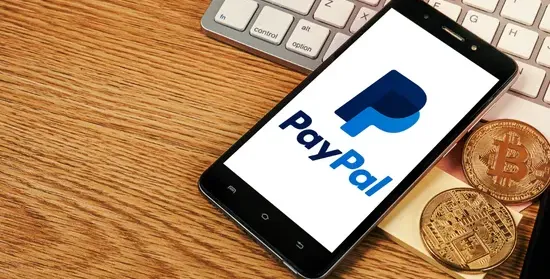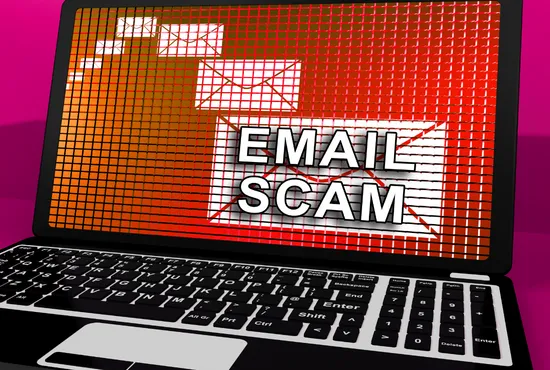
8 Most Common Paypal Scams You Should Be Aware Of
PayPal scams are one of the most common online scams that individuals should be aware of in order to protect their financial security. Unfortunately, PayPal is often targeted by malicious actors who want to take advantage of its popularity and convenience. PayPal scams come in many forms and can take a variety of shapes, from phishing emails claiming to offer rewards or incentives for participating in a survey, to links for fake websites pretending to be legitimate PayPal sites. Regardless of the form it takes, all PayPal scams share a common goal- taking money from unsuspecting victims.

Types of PayPal scams:
Phishing scam
These generally involve an email sent out to hundreds or even thousands of people, often claiming to be from PayPal and offering a special deal or promotion. The email will usually contain a link that directs you to a fake PayPal website which is actually run by scammers. This site may ask for your login information, including username and password, so that the scammers can gain access to your account. You might get emails like: ""Your account is about to be suspended", "You've been paid" or "You have been paid too much".
Fraudulent donation requests for fake charities
These requests usually involve scammers asking for donations via PayPal, with promises that the money will go towards a good cause such as helping children in poverty or providing assistance for disaster relief efforts. Unfortunately, these requests are usually just attempts to steal money from unsuspecting donors.
Spoofed links
Scammers use spoofed links to trick individuals into downloading malicious viruses or malware onto their devices. These links may appear to be from PayPal but instead contain malicious code that can damage an individual's device or steal their personal information.
Overpayment scam
There is also the risk of PayPal overpayment scams. In this scenario, a scammer will send an individual more money than what was originally agreed upon for a product or service and then request that the difference be sent back to them via a different payment method such as bank transfer or gift cards. As soon as that happens, they'll cancel their initial transaction leaving the merchant not just without goods but also out of pocket.
“Chargeback”
Some scammers also like to use “chargeback” schemes with PayPal payments in order to get away with not paying for goods and services that were legitimately purchased on their behalf by another person. In these situations, scammers will claim fraudulent activity occurred on an account even if none has taken place in order to get back their money without having to pay for what was purchased in the first place.
Unauthorized transactions
Another type of scam involves unauthorized transactions coming out of your account without your knowledge or consent. Scammers can use phished accounts with stolen credentials to make purchases on other sites, transfer funds, add beneficiaries, and more –all without the account owner’s knowledge or consent. It’s important to monitor your account regularly and report any suspicious activity immediately so that the proper authorities can take action and protect you from further losses.
PayPal shipping address scams
PayPal shipping address scams are becoming increasingly common as online shopping continues to grow. Scammers have found a way to take advantage of unsuspecting shoppers by posing as legitimate sellers, often on popular e-commerce sites like eBay.
If you're selling something online, never forget to double-check the shipping address. Fraudsters may purchase an item through PayPal but give an invalid delivery address. In return, when the package arrives at its destination and is considered undeliverable, they will contact the courier service to change it and then request a refund from PayPal for their order.
Password reset request scam
If you haven't reset your password and you've just received an email that someone has tried to do so, it's probably a scam. Don't click on any links, as the sole purpose of such an email is to redirect you to a fake PayPal login page or fake PayPal site,
How to protect yourself from being scammed?

The best way to protect yourself from these scams is by being mindful when visiting websites, clicking on links, or providing personal information online. Additionally, it’s important to never respond to emails asking for your PayPal login details or other sensitive information like your National Insurance Number or bank account numbers.
If you receive an email with any of these requests, delete it immediately as it’s likely a scammer attempting to gain access to your personal data. It’s also advisable not to click on unknown emails or suspicious looking links sent via email as they could contain malicious content designed to steal information or install malware onto your device.
When using PayPal, make sure you’re only sending money to people or businesses you trust. Also look out for any unusual payment requests such as requests for payment via Western Union - this could be a sign that the other person is trying to scam you.
Lastly, if you receive an email about a transaction made through PayPal that seems strange or suspect in any way, contact customer service directly and let them know what happened so they can help investigate further and take the necessary steps to ensure your safety and security.
What do real emails from PayPal look like?

You can be sure that, at first sight, such an email will look professional and exactly like any other email sent from PayPal. The scammers know what they are doing. However, there are some details you need to pay attention to. Check the email address, the real one is from domain paypal.com. Instead of your name, it may be addressed "Dear PayPal Customer". Additionally, PayPal will never ask you for any sensitive data, password, account number via email. Nor will it have any links to click or attachments to download.
PayPal also has its own set of scam prevention policies which it applies to every transaction before releasing payments; if a payment appears suspicious it will be placed under review until security checks are complete and all necessary documentation is provided. This means it’s essential for merchants and buyers alike to stay aware of their accounts at all times in order to ensure their safety when using PayPal services online.
PayPal scams are unfortunately all too common and can cause financial losses if individuals don't take proper precautions when dealing with them online. By understanding how they work and being mindful when responding to emails, clicking on links, or providing personal information online individuals can protect themselves against potential fraudsters and keep their finances secure.
What to do if I have been scammed?

If you receive a suspicious email send it to [email protected].
If you were scammed contact PayPal directly, log into your account and visit the Resolution Center. Click "Report a Problem."
You can report a fraud to Action Fraud by calling them on 0300 123 2040.